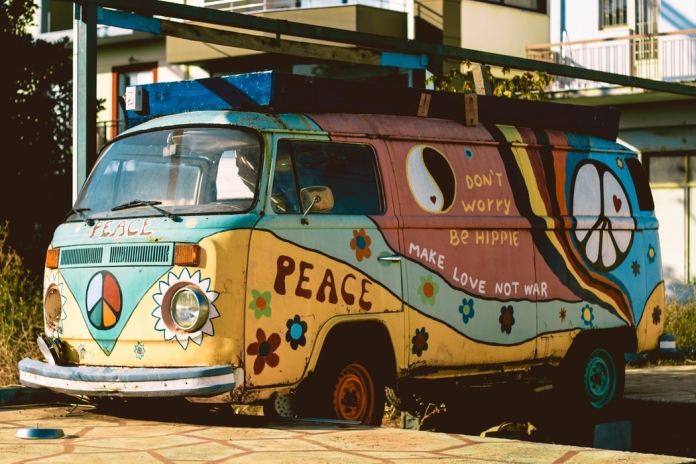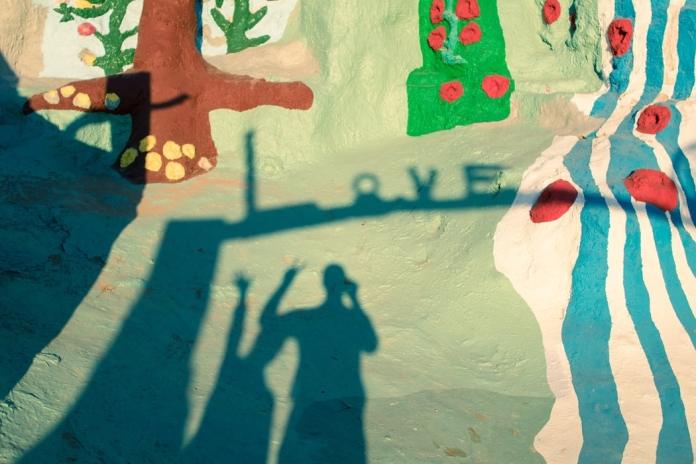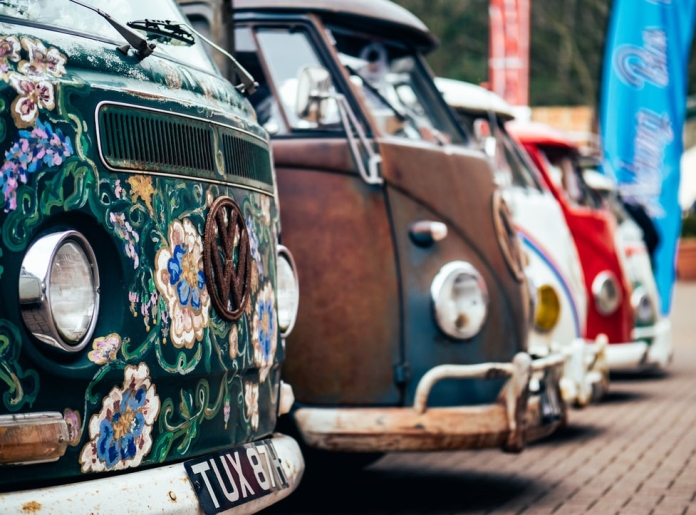
The counterculture of hippies emerged in the 1960s and has remained an enigma ever since. Although this youth movement saw its birth in the United States of America, it soon spread its wing throughout the world to make its presence be felt. Whether it’s films or television, music or arts, literature or fashion, hippies have had a major influence on our culture and are often touted as one of the most notable cultural phenomena of the twentieth century, and no one can argue against it. But one question that has often intrigued people is that are hippies, or to be more specific, modern hippies really as happy as they present themselves to be? Has the essence of extracting joy from being a hippie declined from what it used to be before? We find the answers to these and much more as we take a closer look into understanding modern hippies and their lifestyles.
Who are hippies?

It is only fair that we start from scratch because many people confuse hippies to be associated with something that they probably are not. As the term is used so rampantly, it almost has become an umbrella term. Thus, to understand their happiness, we must understand who they are at their core. A hippie is someone who does not conform to the norms of mainstream society. During the 1960s, many Americans defied the conventional way of living and were part of a counterculture youth movement. The origin of the term is highly debated on but the most accepted theory is that the term was inspired by the Beat Generation that preceded them in the 1950s.
Some of the most notable features of the hippies were that they were drawn towards psychedelic music and played a major role in popularising them, they explored various types of drugs including LSD and marijuana, and unapologetically and proudly embraced the sexual revolution. Millions of youth were instantly mesmerized with this new-edge revolution and as the years progressed, more and more Americans became part of it, and soon it spread to Chile, Australia, Great Britain, Mexico, and New Zealand, before being introduced to the rest of the world.
Embodying the hippie lifestyle

Needless to say, this type of lifestyle drew considerable criticism from the conventional society, primarily the elitists, aristocratic, and orthodox people who just viewed hippies as a bunch of hooligans. But, there is organized chaos in being a hippie. Of course, there is a sense of breaking boundaries and destroying shackles associated with being a hippie, but there is a method to the madness. Being a hippie doesn’t mean one can and should do anything. So, regarding hippies to hooligans is in extremely poor taste and is part of a taboo that the hippies are still facing. Although, hippies could care less as to what others think of them. As long as they aren’t harming anyone else and themselves, they are pretty chilled-minded and go about doing their own business. It has been done. Hippies are very secure with themselves. Neither do they suffer from an inferiority complex nor do they are submerged with a superiority complex in most cases. And probably this is where their happiness stems from. Not giving too much heed to what society says about them gives them an inherited sense of joy.

Their sense of responsibility is perhaps similar to any other human being but they know how to not get too severely affected by the negative vibes that others inflict on them. Just as a duck can separate milk from water if you give them a mixture of both, hippies primarily base their lives on extracting the joy and happiness from little things while also having a pragmatic approach towards life. And this brings us to answering whether the modern hippies are happy or not. As with most people, hippies feel comfortable in each other’s company. So, most of their comrades, whether it is their friends’ circle or their partners, most hippies prefer being in their own community. This is why there has been an emergence of various hippie dating websites in the past few years or so. These online platforms provide you with the best hippie dating experiences where you can find like-minded people and will be able to spend quality time with them.
Sense of happiness for modern hippies

Happiness is a state of mind. At the same time, it is part of a never-ending cycle of emotions. If you are happy now, you might experience sadness later, and then anger, then despair, then something else and the cycle will continue on. Most people find this simple concept hard to grasp. And this is where most people differ from hippies. The high and effortless energy that hippies possess enables them to see the best in people. Since they surround themselves with people of similar energy, a halo of positive vibes revolve around them. Some might wonder whether the sense of happiness for hippies has changed from the twentieth century to the twenty-first century? Has it evolved? Has it degraded? Well… truth be told, it is extremely subjective.
On one hand, the essence of hippies lies in cherishing blissful moments and reliving them. So, whether it’s a hippie from the 1960s or a hippie from the 2024, the basic principle has stayed the same. As such, the level of happiness has remained the same. On the other hand, one can argue that in today’s time, being hippie has become almost performative for many new-schoolers. Some might say that they are allured by its fanciness and their eagerness to gain attention makes them label themselves as hippies. Although the right to call yourself hippie or not solely rests on you but with so many distractions and the highly competitive social media market where everyone is trying to create a brand for themselves, it is hard to tell who is authentically accepting of being a hippie or who is doing it for likes and follows. So, in this regard, maybe the sense of happiness for hippies has declined over the years and will continue to do so until the modern hippies bring a new wave of the revolutionary hippie movement of their own.
To conclude
With all said and done, we must try and find the answer to the question as to whether we can really measure happiness. Well, there’s no defined formula for comparing the happiness of two generations of hippies with similar ideologies. Once again, instead of generalizing happiness for an entire community, we need to take a more microscopic approach and see whether individuals are happy or not. And if they are not, what can we do to create a better world for them.





